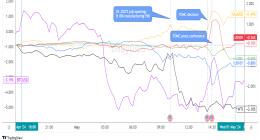More and more of us suffer from allergies, and medicine is struggling to keep up. Rebecca Seal talks to medical anthropologist Theresa MacPhail
When Theresa MacPhail was four, her brother was killed in an accident. When she was 14, her mother died in a car crash. And when she was 24, her father died from anaphylactic shock after a bee flew in through the open window of his truck and stung him in the neck. For anyone else, these devastating experiences would almost certainly have been psychologically catastrophic. “I have several friends who are psychology professors, and they’re always saying, ‘No offence but, by rights, you should be a drug addict, or have severe emotional issues,’” she says, smiling, over Zoom from her home in New York, wearing a cheerful sweatshirt covered in luminous kittens.
Instead, MacPhail decided to use what she’d been through as the bedrock for her PhD at UC Berkeley, and then her career as a medical anthropologist. She laughs. “I’m like the doyenne of death. I have been thinking my whole life about the things that make people ill and pass away, because of my history. These are the waters I’ve been in since I was a kid. Rather than ignoring it, I decided to go at all my fears and insecurities about mortality. And then I basically made it my profession.”



